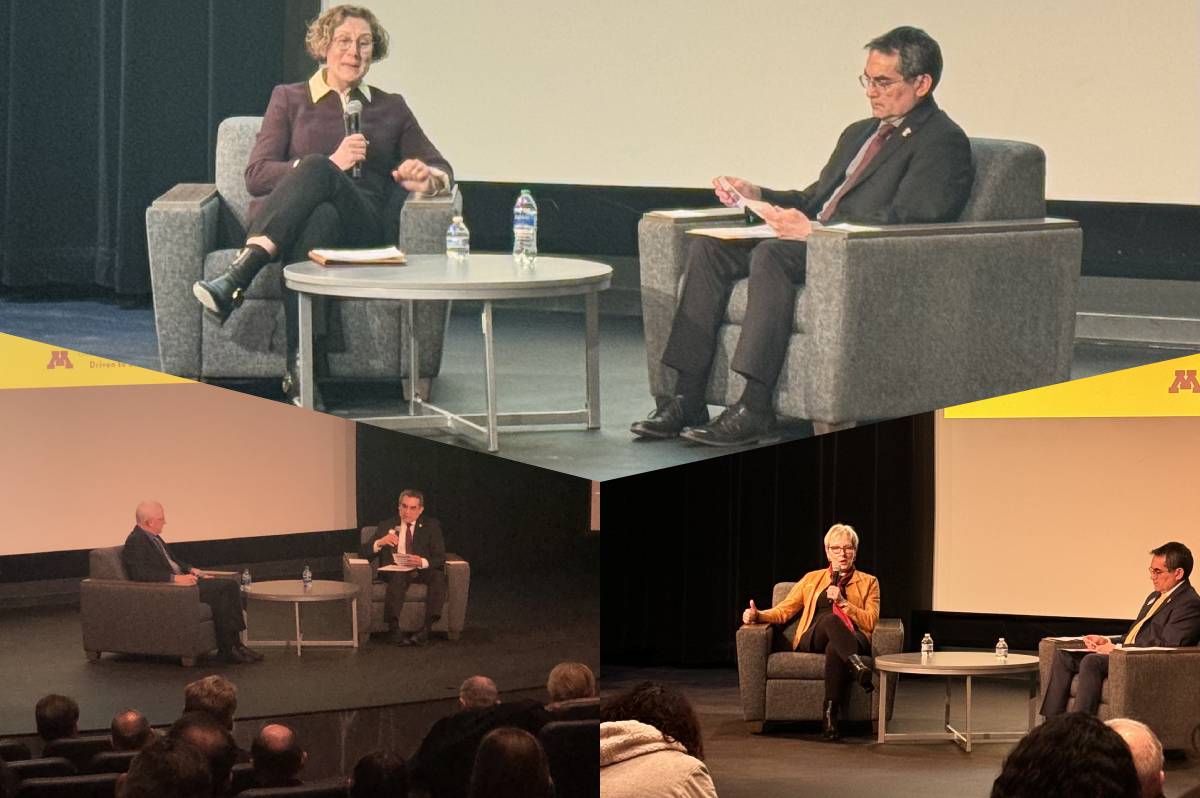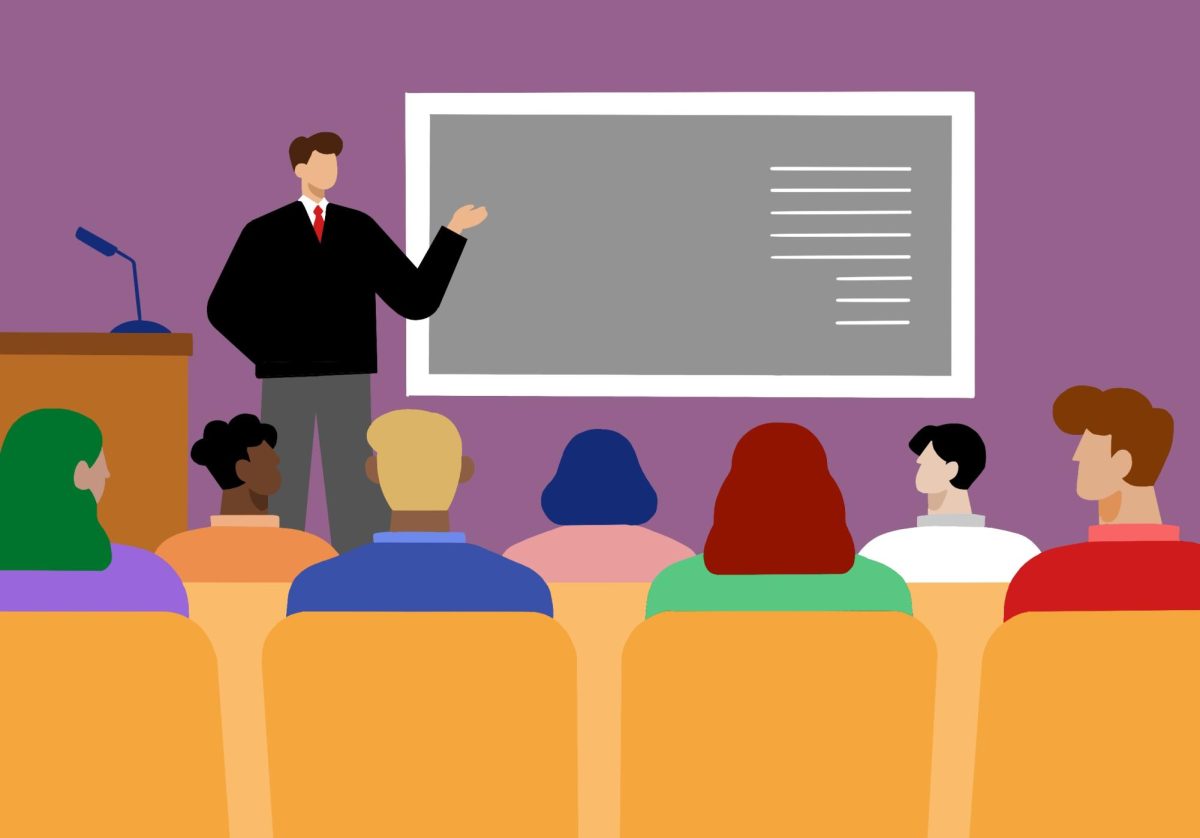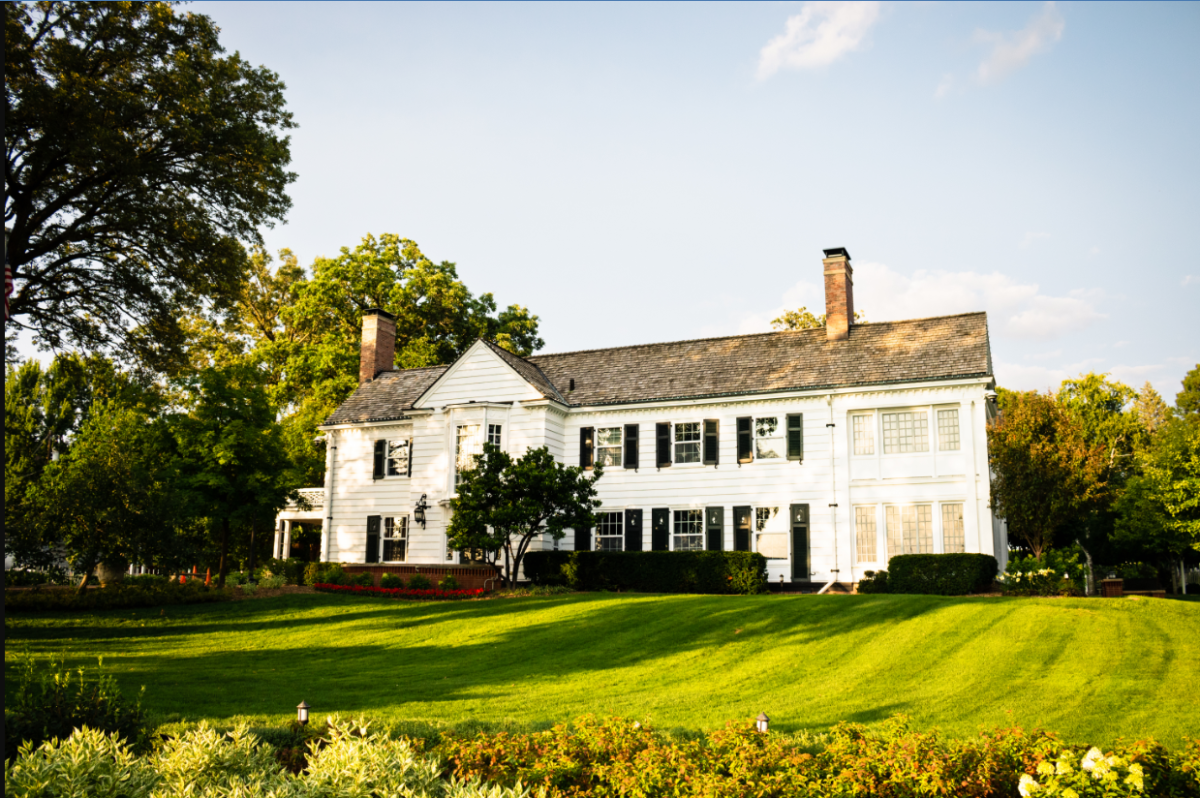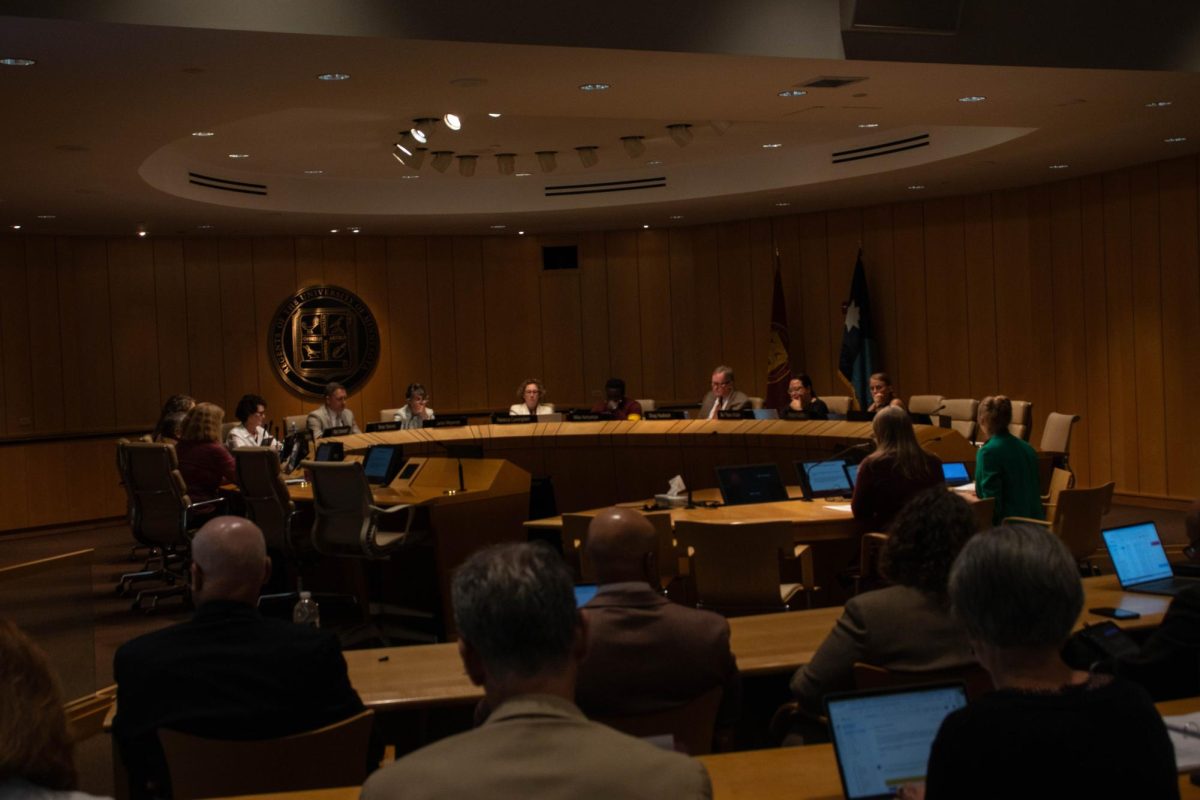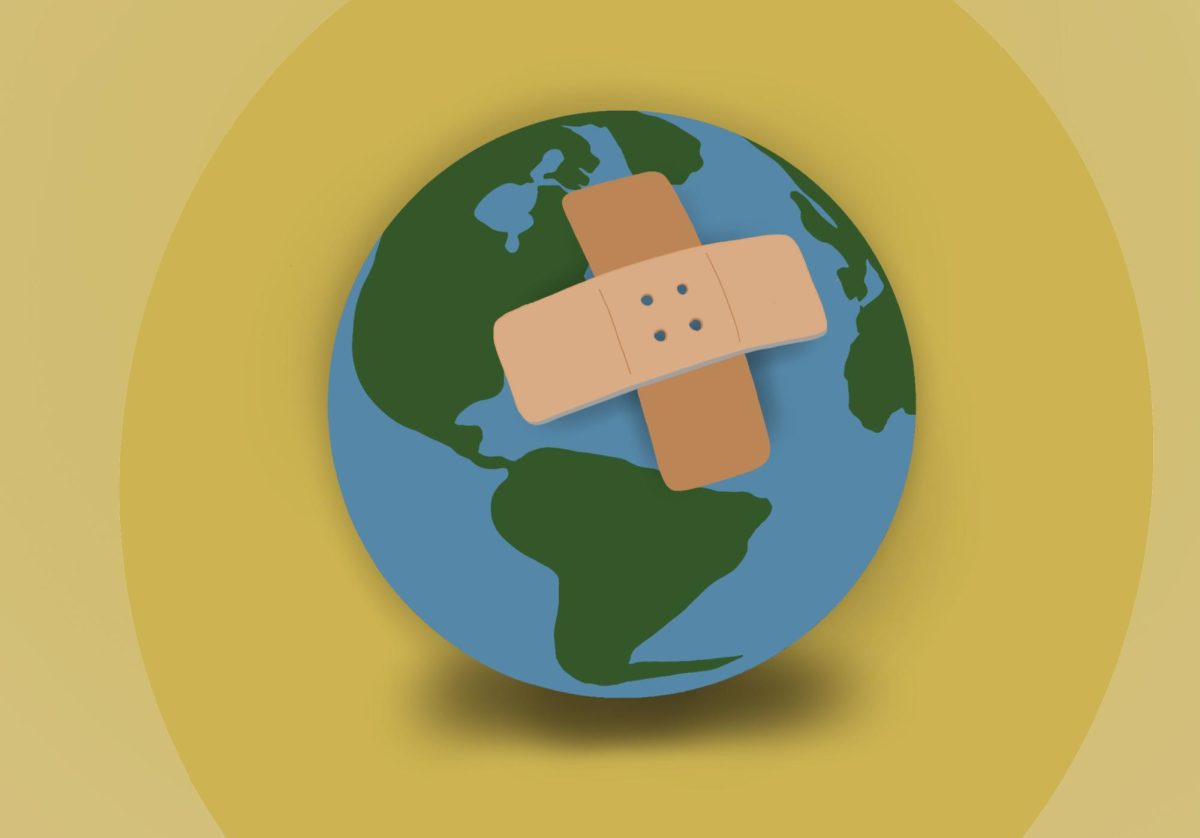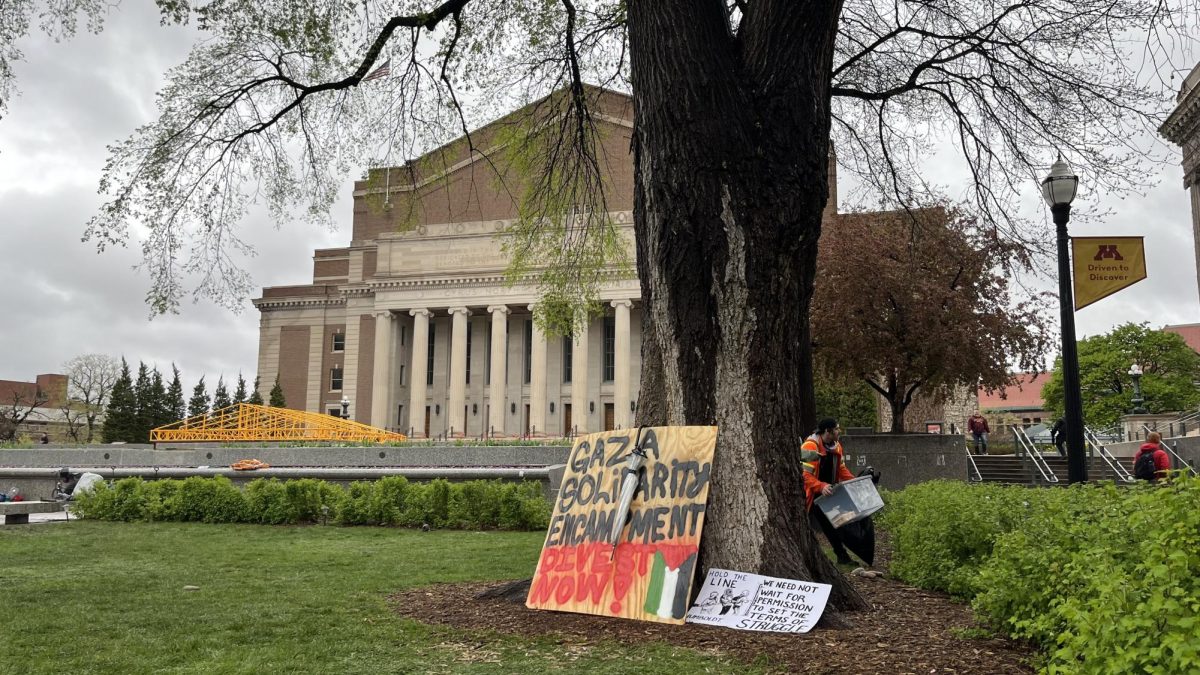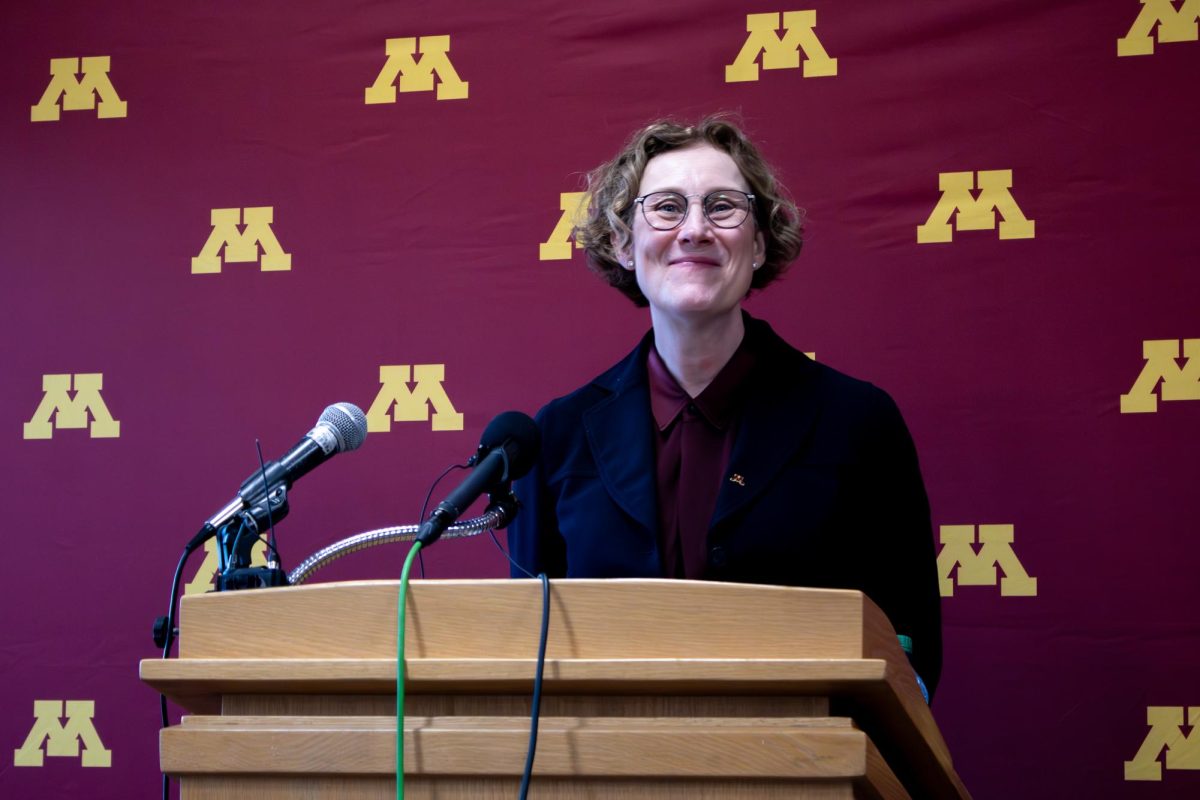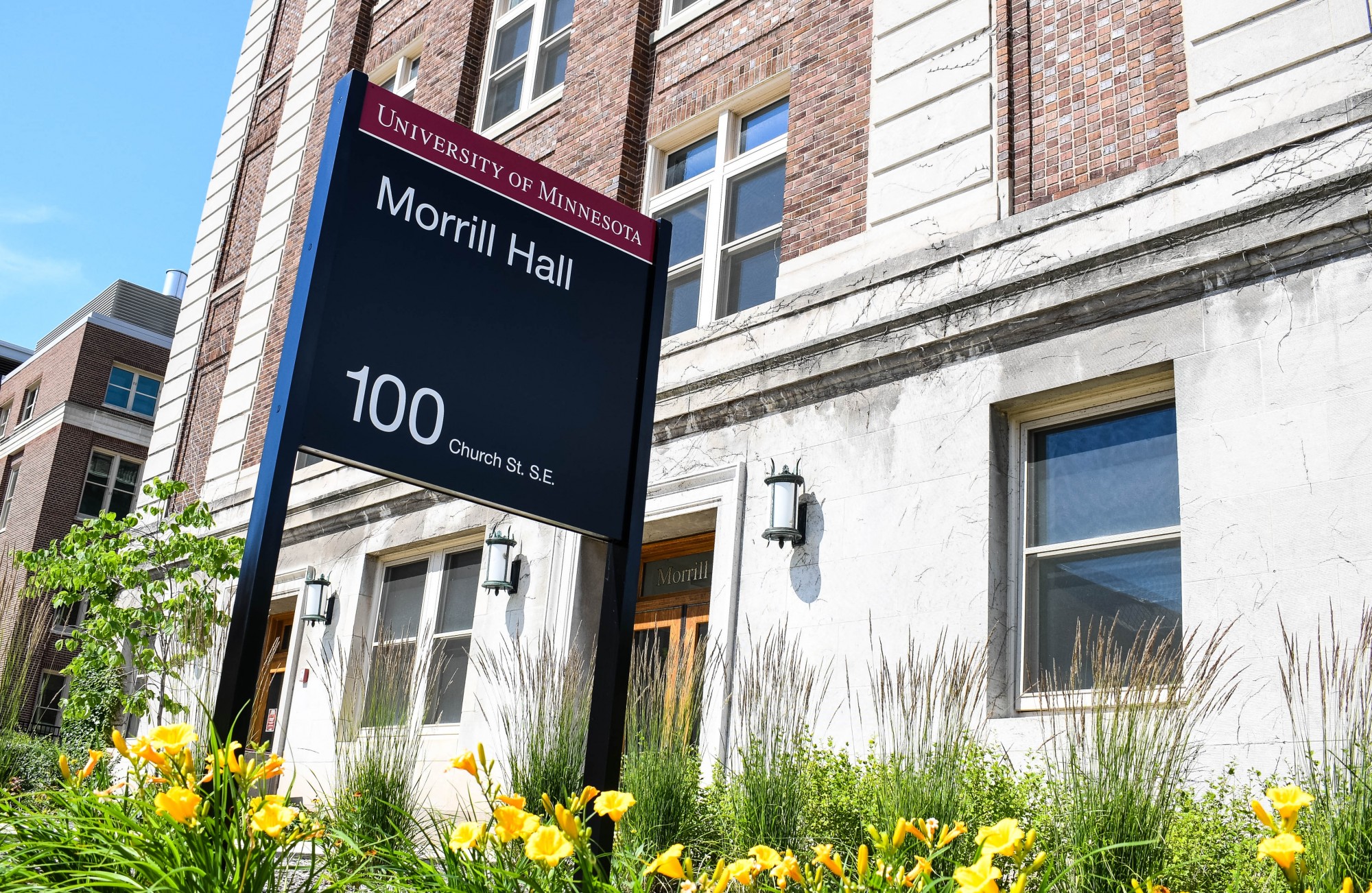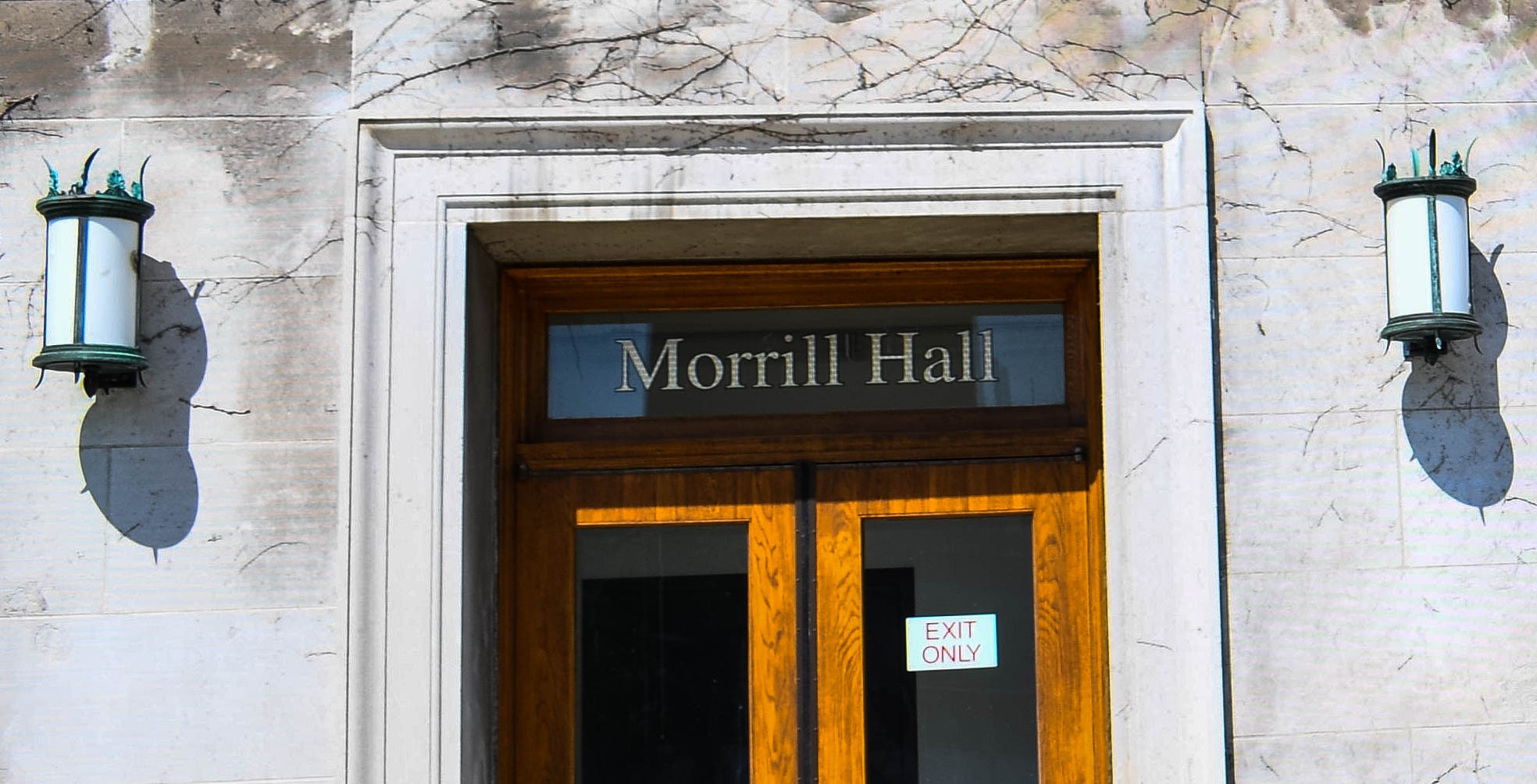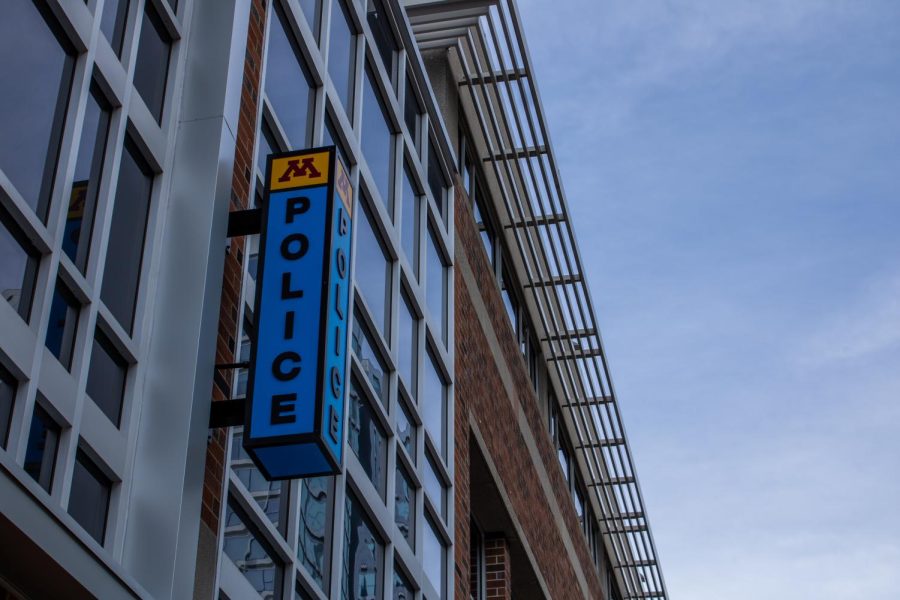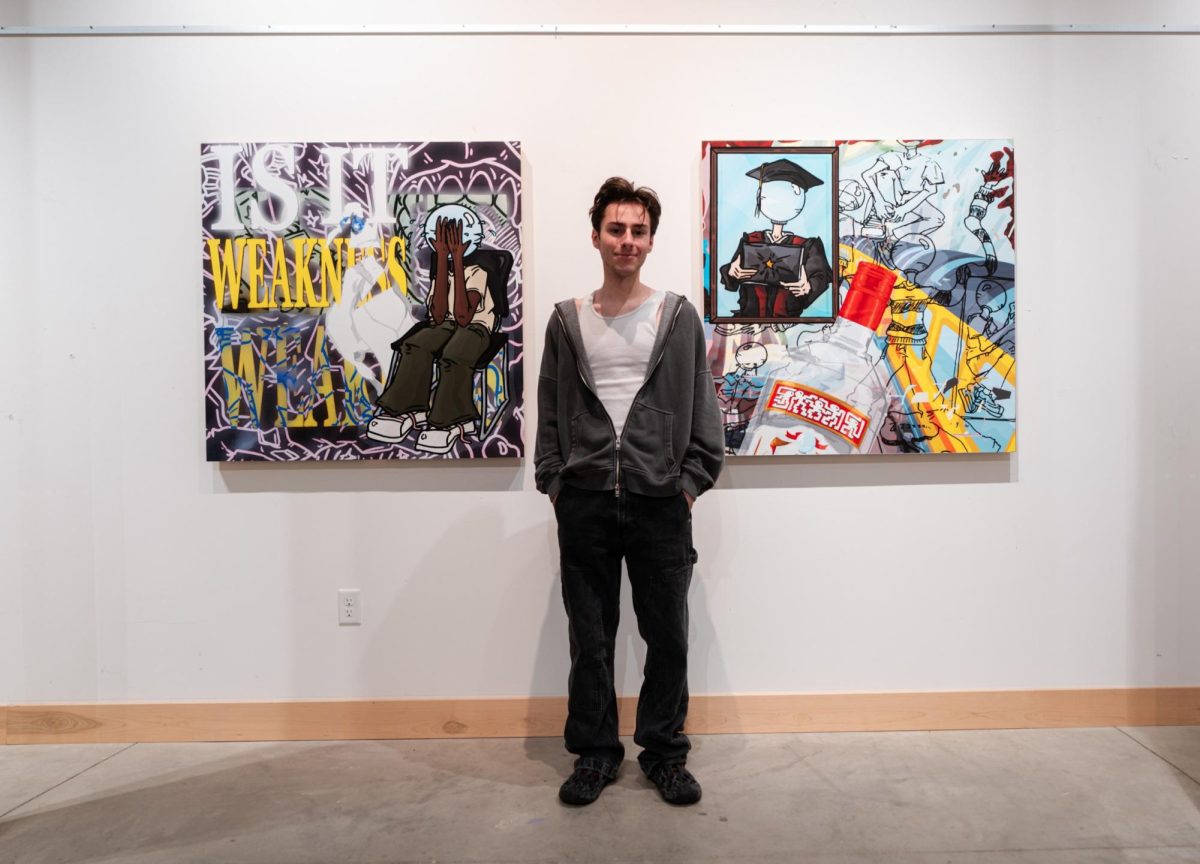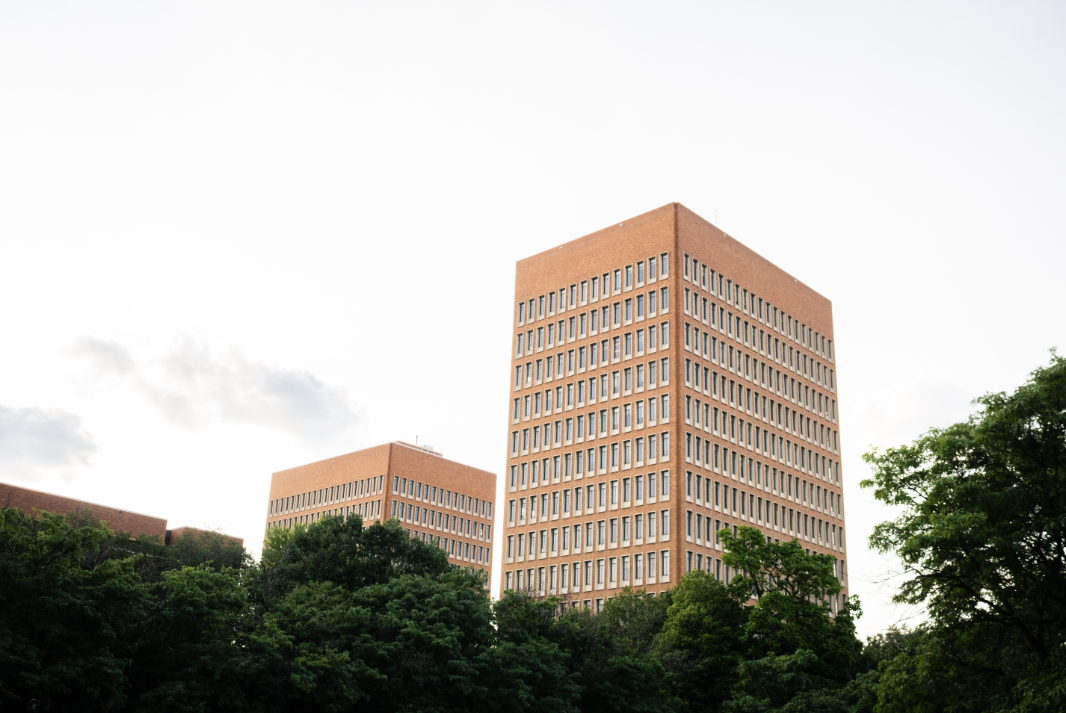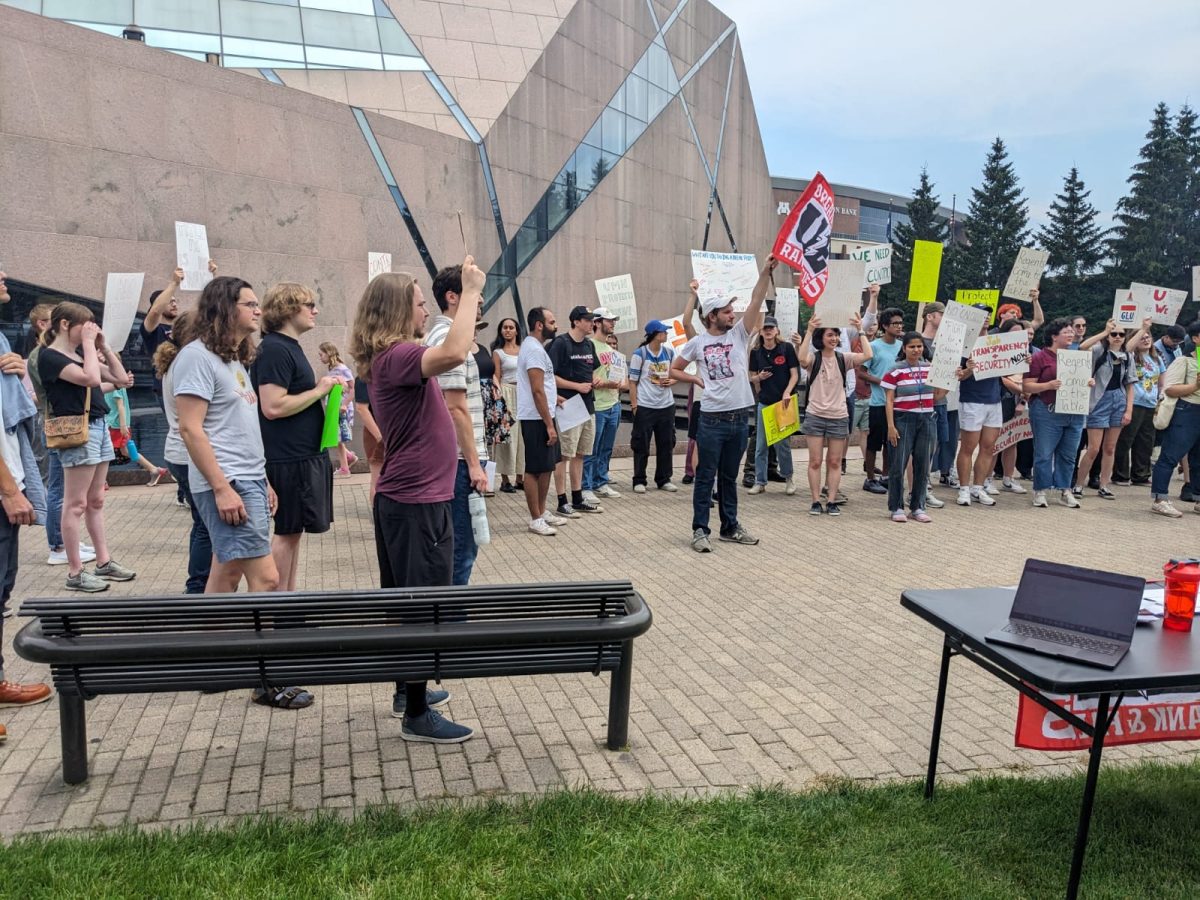The three finalists for the 18th presidency of the University of Minnesota visited each campus for public interviews beginning Feb. 12 and ending Wednesday.
All three candidates visited each of the five campuses for a total of 15 interviews. The candidates will be interviewed again by the Board of Regents on Monday. The University’s next president will be announced the same afternoon.
The interviews were conducted by Dean of the College of Human Education and Development (CEHD) Michael Rodriguez. During their interview, Rodriguez asked each candidate the same two questions.
The questions asked by Rodriguez were: “What is the role of higher education institutions in the protection of academic freedom and free speech during times of global conflict?” and “The value proposition of a higher education degree is in question by many. How can the University position itself as a value worth pursuing?”
Afterward, Rodriguez asked questions submitted by the audience members attending the forum in person and over Zoom.
Holloway’s Twin Cities Visit
James Holloway, the current provost and executive vice president for academic affairs at the University of New Mexico (UNM), began his interview by saying he wanted to create a shared vision for the University.
Holloway said he felt drawn to the position because he saw the immense value the University holds to the state of Minnesota as a whole. If chosen for the position, he said he wants to show the state legislature the value the University has to the state.
“The thing about the University of Minnesota that’s critically important is that it is very clearly created to support and serve the state,” Holloway said.
Funding for faculty salaries at the University is relatively low compared to peer institutions, Holloway said. If a worker chooses to go to another institution that can pay them slightly more, it’s a loss for both the University and the state.
Holloway added he would want to build better relationships with state legislators. He cited his own experience deepening connections with New Mexico lawmakers and said forming those relationships led to greater benefits for UNM.
Holloway, who has extensive experience working with Indigenous communities in his current role as executive vice president and provost at UNM, said another goal he has would be to highlight scholarship opportunities for Indigenous students.
“One of the opportunities we have is to really think about enrollment across the system, and think about how we can ensure that we give students the options to go to the parts of the system that work for them,” Holloway said.
Bloomberg’s Twin Cities Visit
Laura Bloomberg, who served on the search committee that selected Joan Gabel as the former president, said she understands the responsibility of selecting a university president. Now, after spending time as the President of Cleveland State University (CSU), she said she understands the responsibility of serving as one.
Bloomberg said the choice to leave her current position as president of CSU would be a hard one if she were selected, but the opportunity would be “almost impossible” to pass up.
Bloomberg added she hopes the Board selects the best candidate for the position, even if they do not think it is her. She said even making it this far into the process felt like a “pinch-me moment.”
“I think about giving you my full self. I don’t know how to be something other than my full self,” Bloomberg said. “I am honest, I am direct — I am who I am. As my kids would say, ‘You’re not a very fancy president.’”
During her interview with Rodriguez, Bloomberg emphasized the importance of listening to the student voice and including it fully in University conversations.
“What a university is at its finest is a petri dish of ideas,” Bloomberg said. “Ideas at their best often come at the friction points where we are talking to each other where we may or may not agree.”
CSU had recently been experiencing issues with tension on social media regarding the ongoing conflict in the Middle East, according to Bloomberg. Instead of sending out a presidential statement, Bloomberg said she reached out to student leaders directly to talk.
Bloomberg said she gave an hour and a half’s notice, and only expected four or five people to show up, but was surprised when she walked into the meeting room to see 20 student leaders ready to talk.
There was no agenda set for the meeting beforehand, but Bloomberg said it lasted two hours. After the meeting, she said the heat on campus felt like it had been turned down.
There was less tension on social media and more student gatherings being held, Bloomberg said. It felt like the leaders were addressing issues in the community as humans, face-to-face.
“As a president now, a good day is a day when I get to hang with students,” Bloomberg said.
Near the end of the forum, Bloomberg’s interview process was interrupted by pro-Palestine student protestors. They stood from their seats and asked Bloomberg, “Do you condemn the genocide in Palestine?”
“I do not condone genocide,” Bloomberg said in response to the protestors. “I do not condone genocide. I do not condone genocide.”
After a few more minutes, the student protestors marched out of the auditorium to chants of “Free, free Palestine.” After the forum had ended, Bloomberg met with the students outside of the forum to hold a smaller, more direct conversation with them about their concerns.
Cunningham’s Twin Cities Visit
Rebecca Cunningham said she was first introduced to the world of higher education at seven years old when her single mother, who worked two jobs, took her along to night school while earning her degree.
Cunningham said she graduated from high school at the same time her mother graduated from university. She then enrolled in university herself using financial aid opportunities, like the Pell Grant.
“The education I was afforded was because of that funding, and the investment in me by a university,” Cunningham said.
Cunningham said her own life experiences made her sympathize with students in the same position she was in. She told Rodriguez how she wanted to create greater affordability and access to higher education and foster a sense of belonging across all five campuses.
“It’s difficult to have student success when one is trying to figure out how they’re going to buy food,” Cunningham said.
Cunningham’s father-in-law worked at the University for 40 years in environmental studies, and her family frequently vacations in the Boundary Waters Canoe Area Wilderness. She said her many ties to Minnesota make this job feel like a natural fit.
Currently, Cunningham serves as the vice president for research and innovation at the University of Michigan (U-M), a peer school to the University.
When asked about the letter to Fairview stating the Board’s intent to buy back the University’s teaching hospital, Cunningham said she saw a great opportunity for the University to buy back its own facilities and pursue its healthcare mission.
Cunningham said that as president she could bring about change to healthcare in Minnesota, especially in such a pivotal year for the University. She said her 25 years of experience in healthcare as a faculty member at U-M taught her how to balance service, academic and medical missions.
“In that way, I’m sort of bilingual — I speak a native tongue of health,” Cunningham said.










